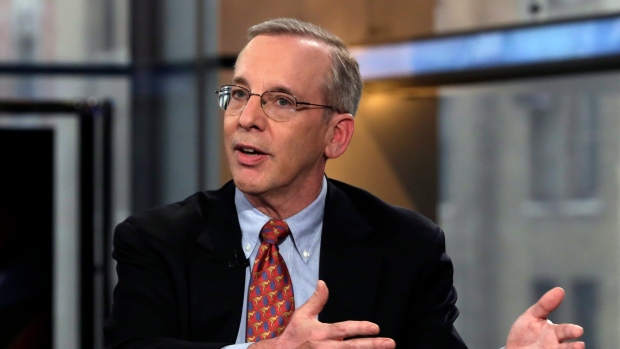Feb 8, 2018
Bill Dudley sticks to rate hike calls amid 'small potatoes' market moves
, Bloomberg News

U.S. stocks have fallen in recent days in part because of the rising prospect that global central banks will be tightening monetary policy, Federal Reserve Bank of New York President William Dudley said.
“Clearly the market is adjusting to the fact that the global economy is growing quite quickly, and as a consequence of that, monetary authorities around the world are either starting to remove accommodation or are thinking about starting to remove accommodation,” Dudley said Thursday in a Bloomberg Television and Radio interview with Kathleen Hays. “So bond yields have moved up, and as bond yields have moved up, that’s put a little bit more pressure on the equity market.”
Stocks have been roiled by the return of long-absent volatility in recent days, as the S&P 500 index of U.S. equities has declined almost 8 percent from its Jan. 26 record high. U.S. Treasuries, which typically perform well when stocks sell off, have been battered, too. The yield on 10-year Treasury notes rose to 2.88 percent at one point on Thursday, matching the highest level in four years.
“So far, I’d say this is small potatoes,” Dudley said of recent market moves. “The little decline that we’ve had in the equity market today has virtually no implications for the economic outlook.”
Three Hikes
The central bank’s policy-setting Federal Open Market Committee, of which Dudley is vice chairman, looks set to raise interest rates at least three times this year, according to the prices of futures contracts linked to the federal funds rate.
“It’s really premature to make predictions about whether it’s going to be one, two, three or four” hikes this year, Dudley said. The median FOMC participant’s projection for three hikes in 2018 that was published when the committee met in December “still seems like a very reasonable projection,” he added, with the caveat that it could speed up or slow down depending on whether or not the economic outlook changes.
A Feb. 2 Labor Department report showing the fastest wage growth over the last 12 months of the expansion so far added to the case for tightening, according to Fed officials who have made public comments on the topic this week.
“Are we moving to a little bit higher rate of wage inflation? I think, you know, possibly,” Dudley said. “But whether that’s actually happened yet, I wouldn’t want to put too much weight on one report.”
The undershoot of the Fed’s 2 per cent inflation goal gives policy makers scope to be patient, he said.









